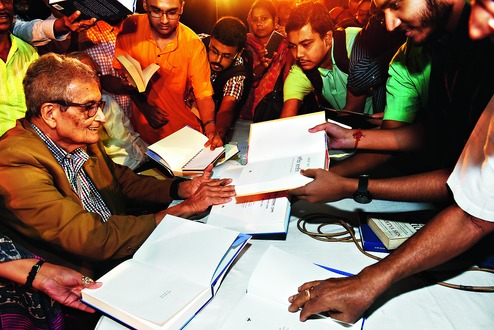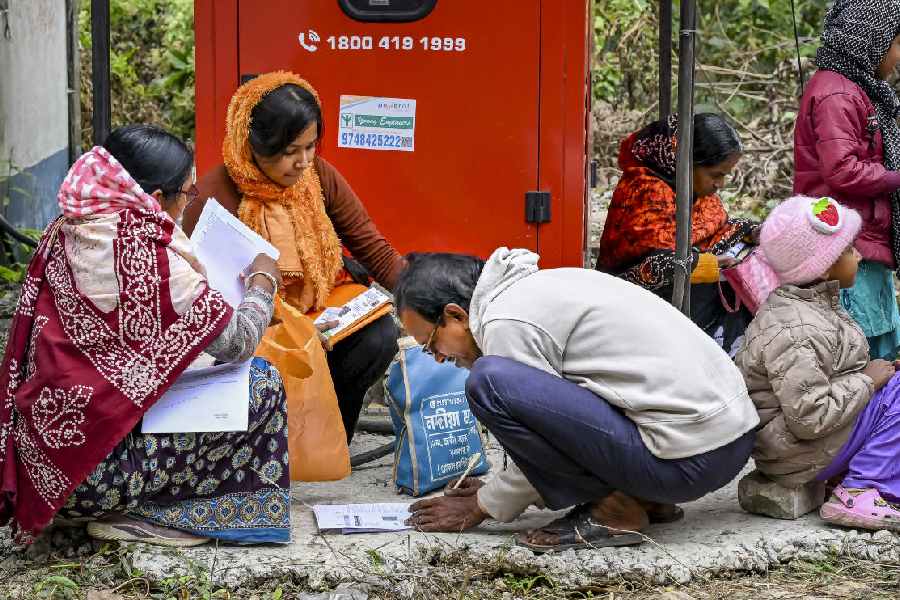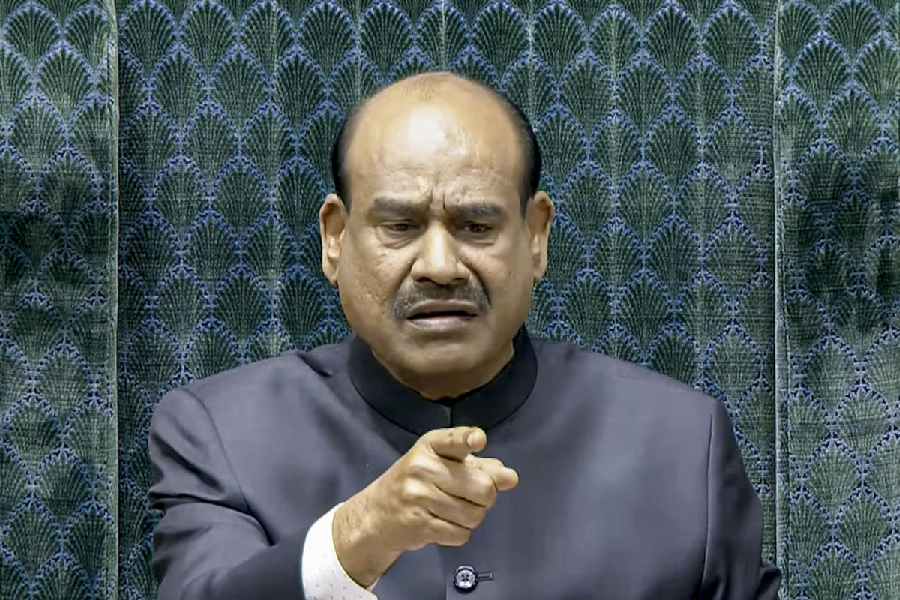
July 10: Nobel laureate Amartya Sen today said that India needed more pioneers like Meghnad Saha and C.V. Raman, but warned against making academic achievement a measure of the success of education.
Sen touched on the Indian education system's preoccupation with first boys, and the contemporary relevance of the Sanskrit drama Mrcchakatika and the Vedas, while releasing First Boy-der Desh (Ananda Publishers) , the Bengali translation of his collection of essays titled The Country of First Boys, at the Indian Council for Cultural Relations (ICCR). Excerpts:
First boys
We tend to measure the success of a school or college in terms of the institute's capability to produce extremely good students. The work of very good students like Meghnad Saha and Satyen Bose is really worth praising. But if we tend to evaluate how the institutes are doing through the prism of the performance of its extremely talented students, we get a miniscule picture of the success of the institutions.
We want more Meghnad Sahas and C.V. Ramans. But we should not measure the success of education through this prism (how the first boys have performed). I think this tendency of making much ado about how the first boys have done exceedingly well has many an ill effect.
Sen has elaborated the ill effects in the book. He writes: "When the obsession with first boys overshadows the education system (I think that is happening in India), then there is enough reason to be worried. If something as narrow as coming first becomes the objective, then the priorities of education get violated."
Mrcchakatika
In Shudrak's Mrcchakatika, we see Vasantasena and Charudutt are leading a rebellion against the corrupt and dislodging the ruler. But when they finally succeed, they show generosity towards the vanquished, they don't deviate from the path of justice.... (Shudrak wants to say) it should not be that we would beat them up just because we have won.
In this thought (of generosity) there is a lesson of political prudence. I don't think it has lost its relevance.
The Vedas
My book includes a chapter on the Vedas. The Vedas may not say anything on atheism, but they say a lot about agnosticism, uncertainty. At the end, it says 'maybe there is someone', 'maybe there is no one'.
I think this uncertainty has immense value.
Sen's book tears into those misconstruing the Vedas. He writes: "Several proponents of religion-based politics are now seen in a rush to demonstrate their respect for the ancient Vedas. I am a stakeholder in the collective admiration for the Vedas, but that has not been inspired by religion. That is also not because we can find some modern mathematics in the Vedas (despite some delightful riddles in the Atharva Veda). I hear that some Indian universities have recently introduced 'Vedic Mathematics' as a subject at the post-graduation level.
But the fact is, mathematics saw major Indian contribution (led by the likes of Aryabhatta, Brahmagupta and others) much after the Vedas. It will be a grave mistake to look for that in the Vedas."










